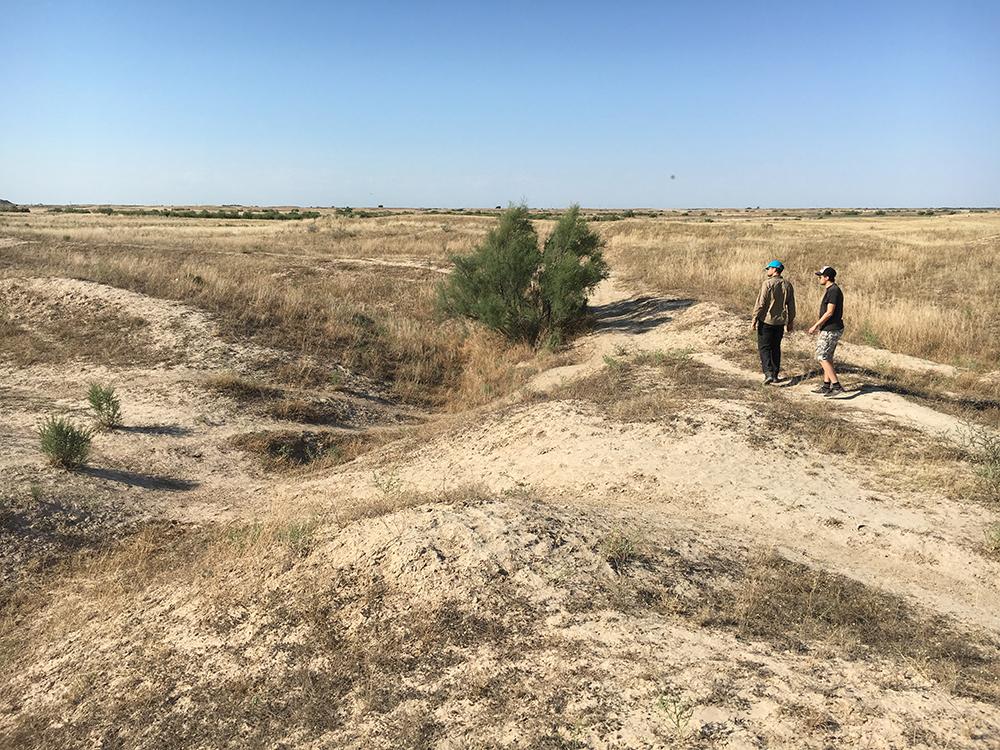Climate Change Caused the Demise of Central Asia's Forgotten River Civilizations, Not Genghis Khan

A new study challenges the long-held view that the destruction of Central Asia's medieval river civilizations was a direct result of the Mongol invasion in the early 13th century CE.
The Aral Sea basin in Central Asia and the major rivers flowing through the region were once home to advanced river civilizations which used floodwater irrigation to farm.
The region's decline is often attributed to the devastating Mongol invasion of the early 13th century, but new research of long-term river dynamics and ancient irrigation networks shows the changing climate and dryer conditions may have been the real cause.
Research led by the University of Lincoln, UK, reconstructed the effects of climate change on floodwater farming in the region and found that decreasing river flow was equally, if not more, important for the abandonment of these previously flourishing city states.
Mark Macklin, author and Distinguished Professor of River Systems and Global Change, and Director of the Lincoln Centre for Water and Planetary Health at the University of Lincoln said: "Our research shows that it was climate change, not Genghis Khan, that was the ultimate cause for the demise of Central Asia's forgotten river civilizations.
"We found that Central Asia recovered quickly following Arab invasions in the 7th and 8th centuries CE because of favourable wet conditions. But prolonged drought during and following the later Mongol destruction reduced the resilience of local population and prevented the re-establishment of large-scale irrigation-based agriculture."
The research focused on the archaeological sites and irrigation canals of the Otrar oasis, a UNESCO World Heritage site that was once a Silk Road trade hub located at the meeting point of the Syr Darya and Arys rivers in present southern Kazakhstan.
Researchers investigated the region to determine when the irrigation canals were abandoned and studied the past dynamics of the Arys river, whose waters fed the canals. The abandonment of irrigation systems matches a phase of riverbed erosion between the 10th and 14th century CE, that coincided with a dry period with low river flows, rather than corresponding with the Mongol invasion.
Luminescence dating at the Oxford Luminescence Dating Laboratory was a crucial component of the study, providing a chronological framework for river system dynamics in Central Asia. Luminescence dating is a technique which allows researchers to calculate the time since sediment was last exposed to light e.g. when a river last flowed and deposited its sediment. With the luminescence dating, in this study, the research team were able to see when the river systems were active and not, but also when the irrigation channels were abandoned.
Dr Julie Durcan, researcher at the School of Geography and the Environment, University of Oxford, said: "Luminescence dating has allowed us to better understand how the river systems in Central Asia responded to changing climate during the past. It has allowed us to reconstruct multiple and extended periods of enhanced rainfall and drought, both of which impacted economy and society in the region."
"This new study demonstrates the importance of testing the role of climatic and environmental variability in the success and demise of past civilisation and society. In contrast to the previously held view that war and invasion led to the demise of Central Asia's river civilisations, we demonstrate the importance of rivers and hydrology to the history of the Silk Road region". The research was led by the University of Lincoln in collaboration with Vrije University Amsterdam, University College London, and the University of Oxford. It is published in Proceedings of the National Academy of Sciences of the United States of America and highlights the critical role that rivers can have in shaping world history.
Further information
- Toonen, W.J.H., Macklin, M.G., Dawkes, G., Durcan, J.A., Leman, M., Nikolayev, Y. and Yegorov, A. (2020) A hydromorphic reevaluation of the forgotten river civilizations of Central Asia. Proceedings of the National Academy of Sciences.
Climate Change Caused the Demise of Central Asia's Forgotten River Civilizations, Not Genghis Khan
A new study involving Dr Julie Durcan challenges the long-held view that the destruction of Central Asia's medieval river civilizations was a direct result of the Mongol invasion in the early 13th century CE.





